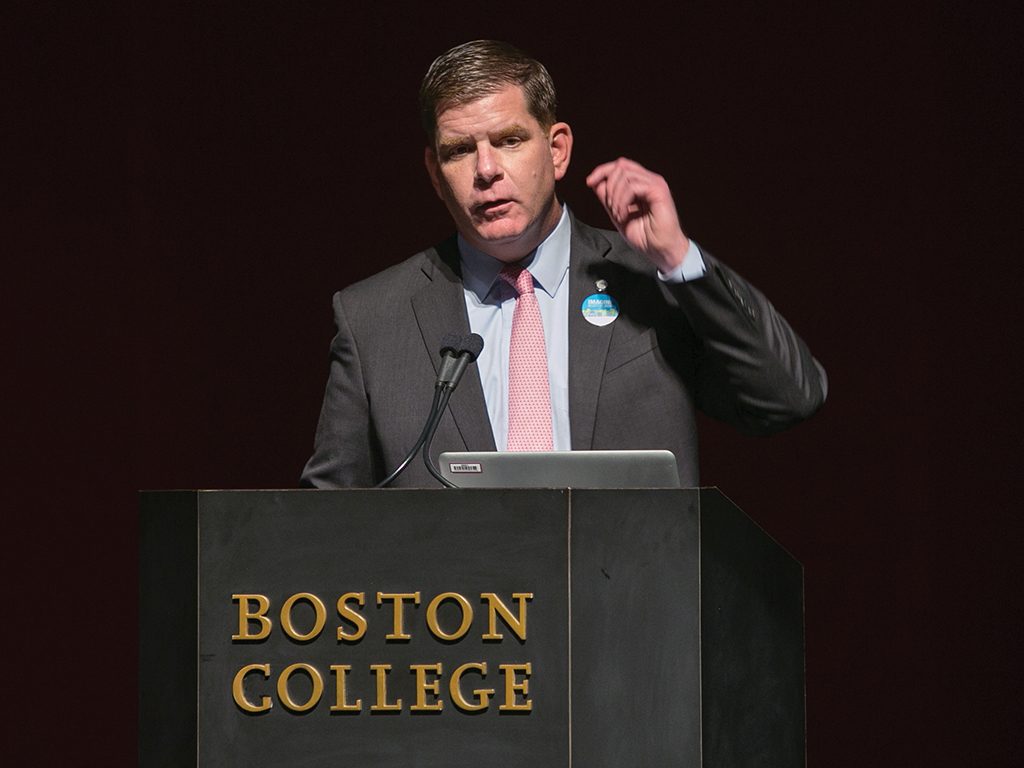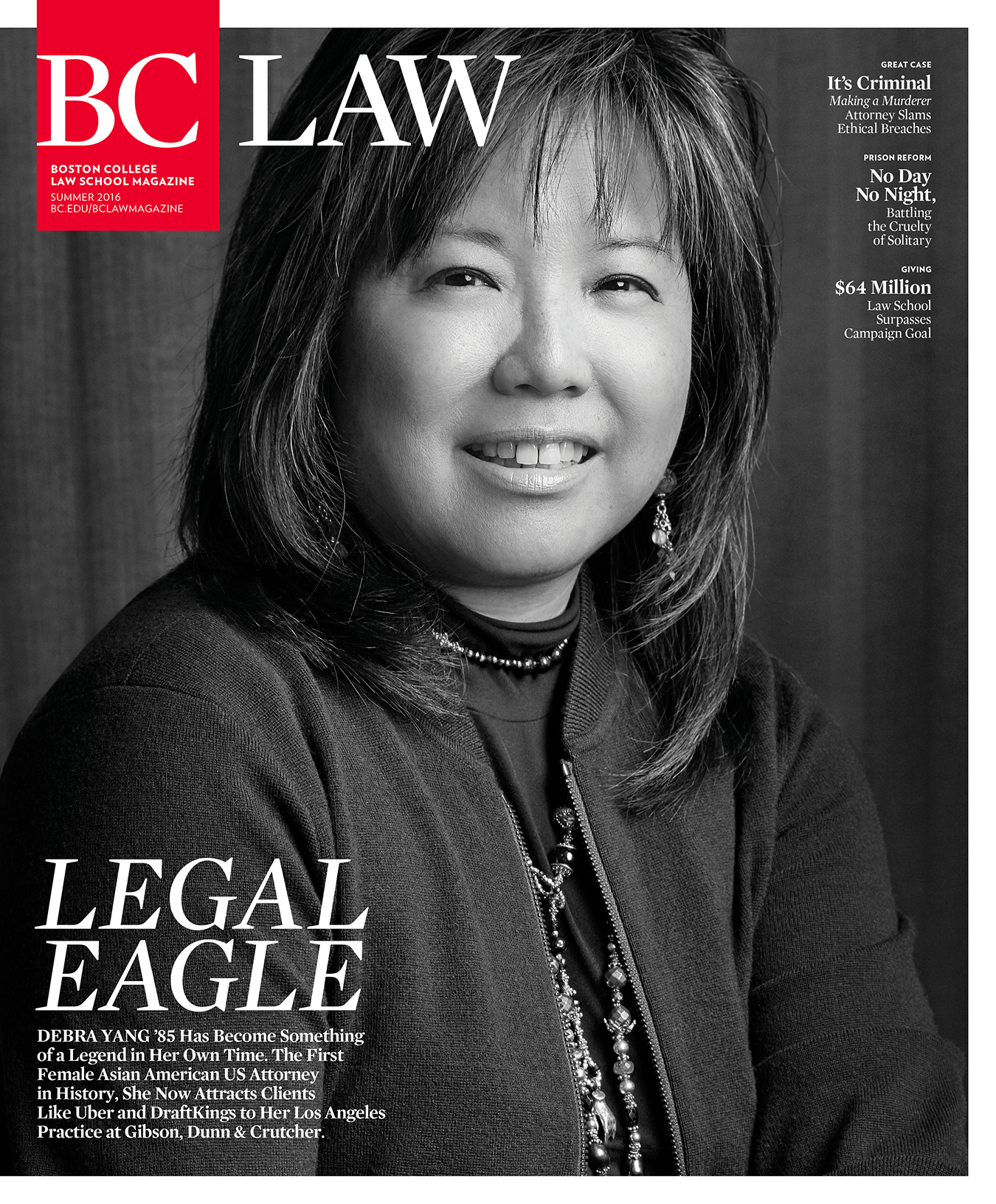What will Boston be like in fifty years? Will there be enough housing, an adequate transportation system, racially desegregated neighborhoods, a school system that serves all the children, employment that provides income equality, and structures to support an aging population?
These were among the issues on the table at the “Imagine Boston 2030” conference convened and cosponsored by the Law School’s Rappaport Center for Public Policy at the Robsham Theater on March 30.
It’s been fifty years since the city undertook a comprehensive planning process, and this event was part of the effort to get as much public input and buy-in as possible. It was keynoted by Mayor Marty Walsh and moderated by WBUR-FM radio host Megna Chakrabarti.
Panelists explored inventive ways to address the challenges to be met if Boston is to continue to thrive. The city’s economic development chief, John Barros, said that investing in mixed-income housing will not only help solve the housing crisis, it will also lessen segregation, while at the same time reducing the need for school busing, a program that currently costs the city $100 million annually.
In an era of low, regressive taxes, cost-conscious thinking such as this dominated the evening. “Why build a levee or a dike when you can build a waterfront park for flood protection?” asked Harriet Tregoning, who heads community planning and development at the US Department of Housing and Urban Development. Tregoning also recommended that the city rezone to allow empty nesters to add second units to their houses. Not only would this reduce older residents’ isolation and provide an extra income stream, it would also increase rental housing stock—all at no cost to government.
Walter Hood, who teaches landscape architecture at UC Berkeley, wondered aloud whether businesses could set up internships for older public school students, adding a real-world component to their education while reducing the cost of teaching them.
Also in the area of education, Shirley Leung, business columnist for the Boston Globe, suggested that businesses underwrite pre-K schooling, which has lifelong educational and economic benefits. “It seems as if the business community has rallied around taxes, against indexing the gas tax,” she observed, no trace of irony in her voice or expression. “Maybe this could be their next big issue.”
Photos: In slide order, “Imagine Boston 2030” speakers included Neil McCullagh (seated, from left, Harriet Tregoning, Shirley Leung, and John Barros), Walter Hood, Mayor Marty Walsh, and Leung.



